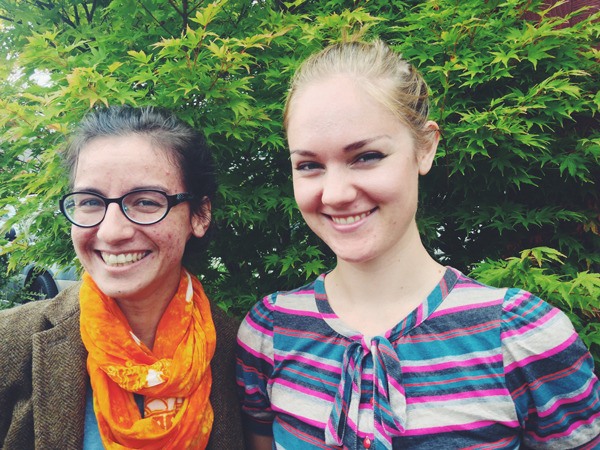“Queer” is defined as something strange, or odd.
For Logan Weiler and many other members of the LGBTQIA (lesbian, gay, bisexual, transgender, questioning, intersex and asexual) community, it is also a term which, having been re-appropriated, denotes identity.
When Weiler, a 20-year-old Coupeville resident, moved to the island from San Diego in 2010, he was at the crux of his self-development, both as a teen and as an individual.
Before the move, Weiler said he made a conscious decision to be more open. He came out to his parents; he embraced his individuality and his identity as a gay man.
Upon arrival in Coupeville, Weiler noticed a lack of youth-centered LGBTQIA groups. Although PFLAG and Integrity were present, the teens and young adults were not.
“I got tired of not having a safe place to go where I could be who I am,” he said.
Soon, Weiler had networked with other LGBTQIA groups to create Alliances on Whidbey Island as well as a radio show, Queer Corner, which he hosts with his partner Austin Johnson.
And on Sunday, Aug. 10 at 2 p.m., he and his partner will be marching alongside other LGBTQIA community members and allies of all ages in Whidbey Island’s first Queer Pride Parade.
One of the parade organizers, Kathryn Morgen, explained in a press release that she chose the term “queer” primarily for its ability to provide “shade from the heat of ‘this way’ and ‘that way.’ ”
“I myself have felt overwhelmed by the exhaustive need of our society to label everything down to the last detail,” she continued. “This is what a man does. This is what a woman does. This is who they sleep with. This is who they marry.”
In an interview Tuesday morning, Morgen and parade co-organizer Bonnie Stinson explained that the term has never held negative connotation for them personally, although they each identify with the LGBTQIA community. Morgen said some people were hesitant to embrace the term, having experienced its derogatory implication. She conceded that for her and others, it is more inclusive of the entire LGBTQIA acronym, whereas gay pride would have excluded the asexual and intersex populations, among others.
Both Weiler and fellow parade participant Mark Therien said they were surprised it had taken this long for Whidbey to show its pride.
“I’m glad it’s finally happening,” Therien said.
For Therien, the parade is a personal opportunity to give back to his friends who have done so much for him.
“This is my way of being there for them. It is about time we celebrated these people in our community and show them that we feel blessed to have them in our lives,” he added.
Weiler, who attended his first Pride parade in Seattle last year, said it is a testament to progress and, he hopes, an excellent opportunity for both young adults and older members of the LGBTQIA community to come together.
Stinson also said that she hopes the parade will give an opportunity for younger people to experience pride, to learn and to belong. Although she was raised in a household that supported her and her identity as a member of the LGBTQIA community, she said that growing up she never knew of community members with whom she could relate. This parade, she said, may change that.
Grethe Cammermeyer, political and social activist, will be serving as grand marshal.
Cammermeyer, who married her spouse Diane Divelbess on the first day of legalization in Washington State, has been an integral part of the LGBTQIA rights movement for decades. In regard to the repeal of the Defense of Marriage Act, she said there is a “sense of vindication when you have social changes for equality to be seen and felt by everyone.”
She added that, although gays and lesbians have become mainstream in some ways, kids who don’t know anyone in the community may feel alone or lack confidence. The parade, she said, may inspire them, allow them to recognize the happiness and accomplishments of LGBTQIA adults, and realize that they can do the same.
“I never considered myself an activist in an outward sense…but this has sort of brought it out of me,” said Morgen.
“You can create empowerment, activism, all sorts of stuff,” Weiler said, explaining that he would like to motivate other young people to be more involved with community outreach and events.
He noted that, although support networks exist for Whidbey’s LGBTQIA youth, many may feel nervous or afraid to attend due to a variety of reasons, such as a fear of coming out to family or friends.
Through his radio show and through participation in the parade, Weiler said he intends to contribute to the effort of making LGBTQIA young people feel safe, empowered and valued.
“I think it’s huge,” Weiler said in regard to the impact of the first Pride parade on Whidbey.
“It’s about damn time,” Therien said with a laugh.
Stinson said she is thrilled and likened it to “graduation day,” adding that she hopes the parade will bring more openness to the already-accepting Whidbey community.
The parade begins at 2 p.m. at the top of Cascade Avenue and will loop through downtown Langley. Those who wish to register may do so online or on the day of the event. Participants will assemble at the Langley Middle School bus parking lot. For more information, either visit the Facebook event page or www.queerparade.com.



